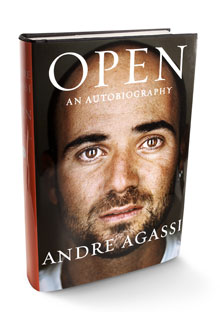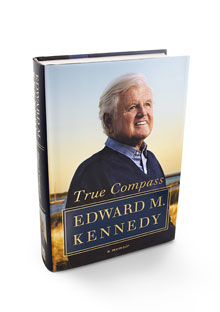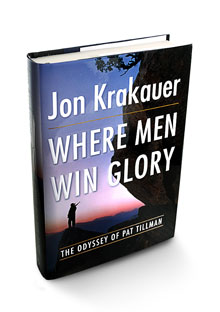 Open
Open By Andre Agassi
400 pages; Knopf
In tennis, love means "nothing"—which is apparently what Andre Agassi felt for the game that made him famous. Over and over in Open , his heartfelt memoir, one of the most successful players of all time says he hates the sport. (Now happily married to fellow champion Steffi Graf, he doesn't exhibit much affection for his first wife, Brooke Shields, either.) Even more surprising, though, is the athlete's shockingly casual admission of his midcareer dabble in the drug crystal methamphetamine. Agassi's style is open, all right, and his book, like so many of his tennis games, is a clear winner.

Photo: Marko Metzinger/Studio D
By Edward M. Kennedy
532 pages; Twelve
Never mind that you've probably heard a lot of these stories before, True Compass, by the late senator Edward M. Kennedy, leaves the impression of a complicated, passionate man who spent most of his life dealing with a legacy he never sought. While there are plenty of stories about his political life, and while some readers might want more direct discussion of the "bad Teddy"—Chappaquiddick, for example—no one will fail to appreciate the expansive, beloved personality on exhibit here: the singing-chef uncle his nieces and nephews called "the Big Cheese," the renowned carouser who found true love at 60, the guy who still, years after his brothers' assassinations, jumped very time a car backfired. As the senator himself said in an interview a month before his death in August, the book is "honest and true and it's mine."
532 pages; Twelve
Never mind that you've probably heard a lot of these stories before, True Compass, by the late senator Edward M. Kennedy, leaves the impression of a complicated, passionate man who spent most of his life dealing with a legacy he never sought. While there are plenty of stories about his political life, and while some readers might want more direct discussion of the "bad Teddy"—Chappaquiddick, for example—no one will fail to appreciate the expansive, beloved personality on exhibit here: the singing-chef uncle his nieces and nephews called "the Big Cheese," the renowned carouser who found true love at 60, the guy who still, years after his brothers' assassinations, jumped very time a car backfired. As the senator himself said in an interview a month before his death in August, the book is "honest and true and it's mine."

Photo: Marko Metzinger/Studio D
By Jon Krakauer
416 pages; Doubleday
Talk about an inspired pairing of subject and author: Jon Krakauer is the exhaustive chronicler of the lives of brave American iconoclasts ( Into Thin Air, Into the Wild ); Pat Tillman was the pro football player who joined the army after 9/11, only to die two years later in Afghanistan, a victim of "friendly fire." Where Men Win Glory , Krakauer's account of Tillman's life—and of the way the Bush administration tried to turn Tillman's story into pro-war propaganda—is both meticulous and passionate, and reveals a far more complex and emotional character than the mythical American "hero."
Find more gifts for terrific guys in our Gift Finder!
416 pages; Doubleday
Talk about an inspired pairing of subject and author: Jon Krakauer is the exhaustive chronicler of the lives of brave American iconoclasts ( Into Thin Air, Into the Wild ); Pat Tillman was the pro football player who joined the army after 9/11, only to die two years later in Afghanistan, a victim of "friendly fire." Where Men Win Glory , Krakauer's account of Tillman's life—and of the way the Bush administration tried to turn Tillman's story into pro-war propaganda—is both meticulous and passionate, and reveals a far more complex and emotional character than the mythical American "hero."
Photo: Marko Metzinger/Studio D




